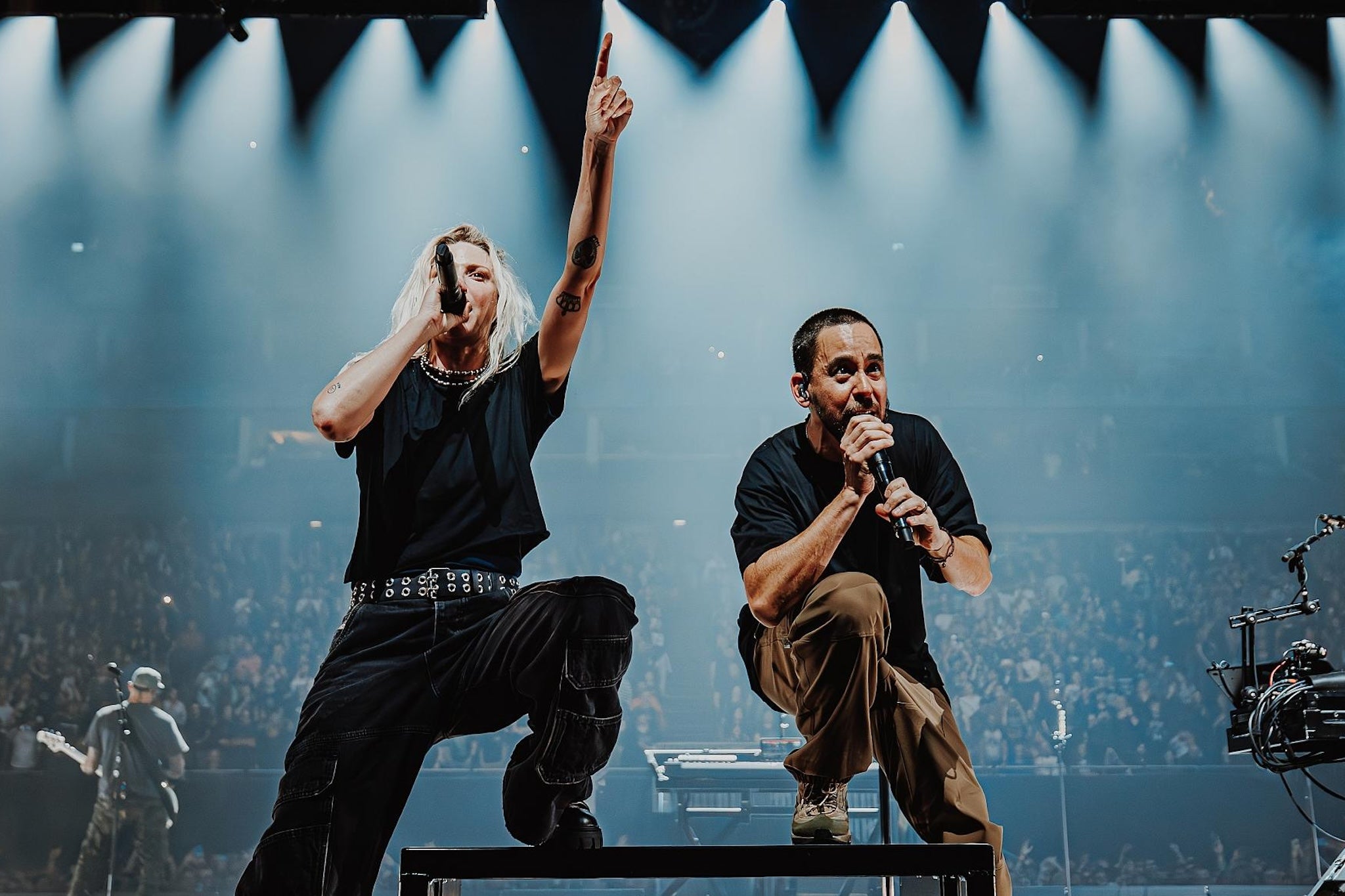
Emily Armstrong, the lead vocalist of the rock band Dead Sara, recently found herself overwhelmed with emotion after a concert where she received an outpouring of support from Linkin Park fans. The connection between artists and their audiences is often profound, but for Emily, the experience felt particularly poignant as she reflected on her journey in the music industry and the legacy of Linkin Park.

The concert took place in a packed venue, where the energy was palpable. Fans from all walks of life gathered to celebrate not only the music of Dead Sara but also the enduring influence of Linkin Park. As Emily took the stage, she felt an electric connection with the audience, a shared passion for music that transcended generations. Knowing Linkin Park’s impact on countless lives, including her own, added a layer of significance to the night.

Throughout the show, Emily performed with raw intensity, pouring her heart into every song. The crowd responded with enthusiasm, singing along and creating a sense of unity that filled the air. Each note resonated with the shared experience of loss, hope, and resilience—core themes that both Dead Sara and Linkin Park explore in their music. As the concert progressed, Emily felt the weight of her emotions rising, aware that she was not just performing for her fans but also honoring the memory of Chester Bennington, the beloved frontman of Linkin Park, who had left an indelible mark on the music world.

After the final song, the adrenaline of the performance began to fade, and Emily found herself backstage, reflecting on the night. It was then that she was approached by several fans who expressed their gratitude for her music and the impact it had on their lives. Many of them spoke about how Linkin Park had helped them through difficult times, and in turn, they explained how Dead Sara resonated with their experiences. The stories poured in, and with each heartfelt message, Emily felt herself becoming increasingly emotional.
In that moment, surrounded by the warmth and sincerity of Linkin Park fans, Emily began to cry. It was a release of pent-up feelings—of gratitude, of shared struggle, and of the recognition that music can serve as a lifeline for many. She realized that her journey as an artist was not just about creating music but also about connecting with others who felt the same pain, joy, and hope that she did. The tears flowed as she embraced the fans, acknowledging their stories and thanking them for their unwavering support.
The bond between musicians and fans is often described as a special relationship, but for Emily, it felt particularly profound in this instance. Linkin Park had been a significant influence on her and many of her peers, shaping their musical identities and providing solace during challenging times. The realization that her music could have a similar impact on others was both humbling and exhilarating. As she interacted with the fans, Emily felt a sense of purpose, knowing that her voice was part of a larger conversation about mental health, resilience, and healing.
In the days following the concert, Emily took to social media to share her experience. She posted a heartfelt message reflecting on the power of music and the importance of community. “Last night was more than just a concert,” she wrote. “It was a reminder of the incredible connections we share through music. Thank you to all the Linkin Park fans for your love and support. You inspire me every day.” The post quickly garnered thousands of likes and shares, as fans resonated with her sentiments and echoed their own experiences with both Dead Sara and Linkin Park.
Emily’s vulnerability in sharing her emotions struck a chord with many. Fans flooded the comments section with their own stories, recounting how music had been a refuge during their darkest moments. The conversation shifted from simply celebrating the concert to discussing the broader themes of mental health and the importance of supporting one another. Many fans expressed their appreciation for artists who are willing to be open about their struggles, reinforcing the idea that vulnerability can be a source of strength.
This emotional exchange extended beyond social media, as Emily began receiving messages from fans who were inspired to share their own artistic journeys. Many expressed that her authenticity encouraged them to pursue their passions, whether in music or other creative outlets. Emily recognized that this circle of support was essential, particularly in an industry often characterized by competition and isolation. She began brainstorming ways to create a more inclusive community among artists and fans, where everyone could feel valued and heard.
As the weeks went by, Emily continued to reflect on the powerful experience of that concert. She decided to channel her emotions into her music, writing new songs that explored themes of connection, resilience, and healing. The influence of Linkin Park loomed large in her creative process, as she sought to honor their legacy while also forging her own path. Inspired by the outpouring of support from fans, Emily committed to using her platform to advocate for mental health awareness, emphasizing the importance of seeking help and fostering connections.
In addition to her musical endeavors, Emily began collaborating with mental health organizations to raise awareness and provide resources for those in need. She organized events that combined music